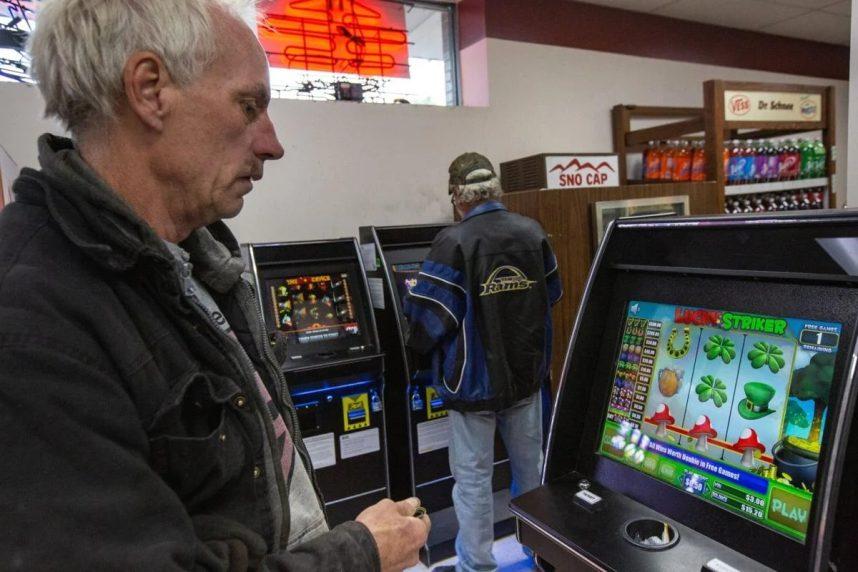Missouri’s Largest Newspaper Calls for Skill Gaming Crackdown
[ad_1]
Posted on: September 12, 2023, 08:57h.
Last updated on: September 12, 2023, 08:57h.
Missouri’s most circulated newspaper — the St. Louis Post-Dispatch — is calling on law enforcement in St. Louis County and across the Show-Me State to crack down on unregulated video skill gaming machines.

Skill gaming machines are an escalating concern in many parts of the US, including in Pennsylvania and Virginia. The controversial gaming machines have also proliferated in Missouri inside convenience stores and restaurants.
Unlike a regulated slot machine found on one of the state’s 13 riverboat casinos where a gambler makes a bet and the terminal automatically reveals if the player won or lost, a skill gaming machine functions quite differently. In Missouri, skill games are often labeled as “No-Chance Games” where the player can see the outcome of the next play before making a bet.
In games like “Play & Win,” the player can see if the next play will win. The games require the players to lose first to reach a winning play. The difference, backers of the machines say, renders them immune from gambling regulations because the player knows the next outcome and the activity therefore doesn’t constitute a game of chance.
Media Plea
Missouri Gov. Mike Parson (R) and the state’s top legal official, Attorney General Andrew Bailey (R), have shown little interest in cracking down on the controversial skill gaming machine terminals.
Bailey recused himself from a recent lawsuit brought by skill gaming manufacturer Torch Electronics — the leading manufacturer of skill games in Missouri — against the Missouri State Highway Patrol on allegations of harassment and a “concerted campaign of threats” against the company and its clients that house the machines. Torch has donated extensively to both Parson and Bailey’s political campaigns.
A separate lawsuit against Torch brought by seven individuals who self-excluded themselves from the state’s regulated casinos but accessed the company’s skill gaming machines and lost money was dismissed last month. US District Judge Brian Wimes said the case was unwarranted because the plaintiffs had the option to simply not play the games.
The editorial board of the St. Louis Post-Dispatch says the lawsuit nonetheless shows how the unregulated machines pose a considerable threat to the public, as the machines provide no consumer protections or regulatory safeguards.
They are undoubtedly pulling business away from the state’s licensed casinos — while paying none of the gaming taxes for education that the casinos pay and facing none of the regulation to ensure the fairness of the games, nor to mitigate gambling addiction, nor to prevent children from playing,” the op-ed read.
“Far from trying to hide what they’re doing, the industry is openly lobbying in Jefferson City for the right to be left alone, state law be damned. They’re even suing the Missouri Highway Patrol for daring to investigate their obvious lawbreaking,” the editorial continued.
Entertainment Claim Rejected
Torch Electronics asserts that its skill or no-chance gaming machines are forms of entertainment that allow customers to win some cash. The manufacturer also contends that the machines keep customers inside the small and local businesses longer, which in turn generates more revenue for the business owners. The machines’ profits are also shared with the host establishment.
But the St. Louis Post-Dispatch editorial board says those claims carry little weight.
“Their specious argument is that these machines don’t actually constitute gambling. As if the patrons who routinely stand around plunking their money into the machines are doing so for ‘entertainment,’ and not because a certain percentage of them will get more money back. Please,” the editorial concluded.
[ad_2]
Source link
